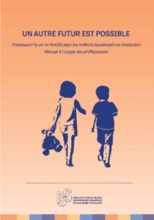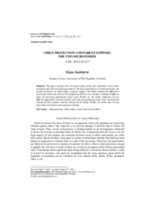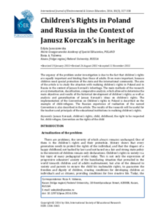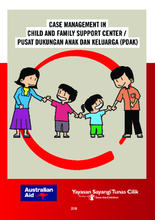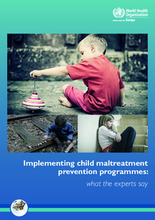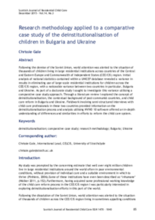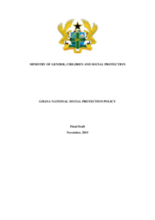Displaying 211 - 220 of 461
This booklet is based on a recent internal desk review of Save the Children’s and partners’ work against physical and humiliating punishment of children, commissioned by Save the Children Sweden. It aims to present best practices, to show what methods have worked around the world, and to spread knowledge about results achieved and lessons learned when it comes to law reform and positive discipline.
Ce manuel fournit des conseils aux professionnels qui travaillent avec les enfants handicapés dans les soins en établissement.
The Transformative Monitoring for Enhanced Equity (TransMonEE) Database, established in 1992 by the UNICEF Innocenti Research Centre, captures a vast range of data relevant to social and economic issues relevant to the situation and wellbeing of children, young people and women in Eastern Europe and Central Asia. The 2016 database includes data on children in alternative care for Eastern and Central Europe and Central Asia, as well as data on child protection, social protection, and other topics.
This paper examines the two basic models of the state authorities’ intervention into family life aimed at protecting children.
The aim of this article is to study the situation on realizing children’s rights in Poland and in Russia in the context of Janusz Korczak’s principles.
This book introduces the PDAK – Pusat Dukungan Anak dan Keluarga (Child and Family Support Centre) in Indonesia and the case management system utilized within the centre.
This handbook authored by the World Health Organization Europe and Liverpool John Moores University – based on a series of interviews with the world's leading experts on preventing child maltreatment – provides practical information to policy-makers, practitioners and others on implementing prevention programmes. The handbook describes key principles for selecting and delivering programmes, and important practical considerations, including resources and technical support.
This study discusses a variance in results in eliminating use of large-scale residential institutions for children across the CEE/CIS region.
The Child Welfare Policy Manual, issued by the U.S. Department of Health and Human Services, Children’s Bureau, contains policy questions and answers applicable to child welfare programs operated by the Children's Bureau.
The National Social Protection Policy of Ghana provides a framework for delivering social protection coherently, effectively and efficiently in a way that is holistic and properly targeted.


